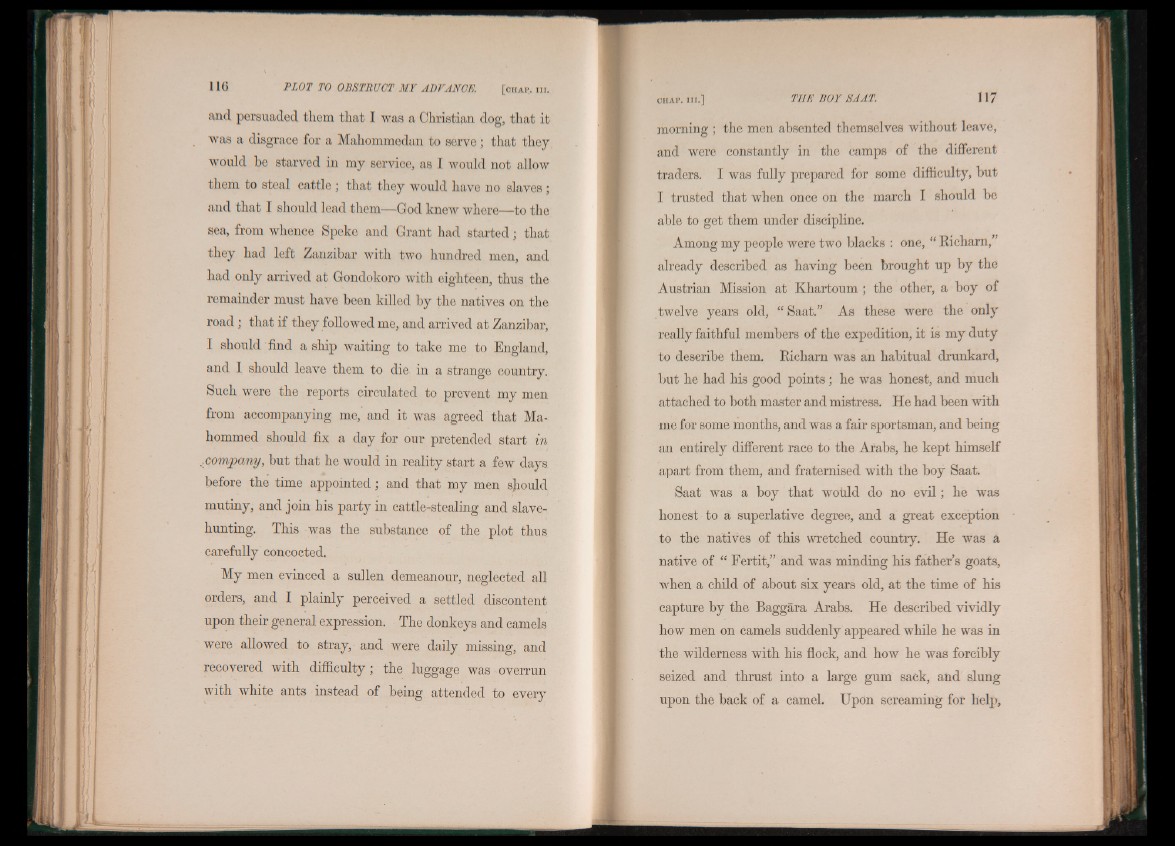
and persuaded them that I was a Christian dog, that it
was a disgrace for a Mahommedan to serve; that they
would be starved in my service, as I would not allow
them to steal cattle; that they would have no slaves;
and that I should lead them—God knew where—to the
sea, from whence Speke and Grant had started; that
they had left Zanzibar with two hundred men, and
had only arrived at Gondokoro with eighteen, thus the
remainder must have been killed by the natives on the
road ; that if they followed me, and arrived at Zanzibar,
I should find a ship waiting to take me to England,
and I should leave them to die in a strange country.
Such were the reports circulated to prevent my men
from accompanying me, and it was agreed that Mahommed
should fix a day for our pretended start in
.company, but that he would in reality start a few days
before the time appointed; and that my men should
mutiny, and join his party in cattle-stealing and slave-
hunting. This was the substance of the plot thus
carefully concocted.
My men evinced a sullen demeanour, neglected all
orders, and I plainly perceived a settled discontent
upon their general expression. The donkeys and camels
were allowed to stray, and were daily missing, and
recovered with difficulty; the luggage was overrun
with white ants instead of being attended to every
morning ; the men absented themselves without leave,
and were constantly in the camps of the different
traders. I was fully prepared for some difficulty, but
I trusted that when once on the march I should be
able to get them under discipline.
Among my people were two blacks : one, “ Hicham,”
already described as having been brought up by the
Austrian Mission at Khartoum; the other, a boy of
twelve years old, “ Saat.” As these were the only
really faithful members of the expedition, it is my duty
to describe them. Hicham was an habitual drunkard,
but he had his good points; he was honest, and much
attached to both master and mistress. He had been with
me for some months, and was a fair sportsman, and being
an entirely different race to the Arabs, he kept himself
apart from them, and fraternised with the boy Saat.
Saat was a boy that wohld do no ev il; he was
honest to a superlative degree, and a great exception
to the natives of this wretched country. He was a
native of “ Fertit,” and was minding his father’s goats,
when a child of about six years old, at the time of his
capture by the Baggara Arabs. He described vividly
how men on camels suddenly appeared while he was in
the wilderness with his flock, and how he was forcibly
seized and thrust into a large gum sack, and slung
upon the back of a camel. Upon screaming for help,